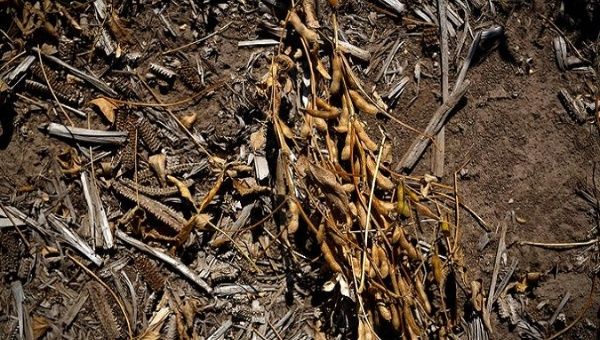
Argentina faces drought on its yerba mate plantations. Mar. 17, 2022. | Photo: Twitter/@bagval
In light of drought in the northeast of Argentina, the yerba mate plantation is threatened.
In the northeast of Argentina, Corrientes province, the growing drought is making harder the harvest of the yerba mate, where more than 4000 of the inhabitants there are dependent on a mate farming cooperative founded a century ago by German settlers.
RELATED:
Argentine Social Movements Reject IMF Extended Facility Program
The vice-president of the Liebig Agricultural Cooperative, Orlando Stvass, disclosed that "the plants are withered. Sixty percent are dead. Losses are in the millions and we are still falling – we still haven't reached the bottom. The situation is a total disaster."
The mate plantations of Colonia Liebig were colored in green; nowadays, due to the drought, the plantation combines to create a brown sea of dry bushes. Alberto Müller, an agronomist, referring to the dry leaves, said, "they burned like they were in an oven."
Some areas of Misiones Province, alongside Colonia Liebig, are the central regions of Argentina dedicated to the harvest and growing of yerba mate, using its leaves for exporting the traditional infusion to Syria, China, Chile, Lebanon, the U.S., Spain, etc.
The drought affects the production of yerba mate in Argentina with great losses. The country is the leader in exports and second in production behind Brazil, which, together with Paraguay, comprises the three leading suppliers.
The current cultivation will not be ready to be consumed until 2023, given the storage process before it is packaged is at least ten months. "This year's stock is assured, but there will be a shortage after that," Stvass said.
Alongside Brazil and Paraguay, Argentina is the world's leading supplier of yerba mate. Mate's crop requires iron-rich soils and a subtropical climate with no dry season; meanwhile, the production areas have not had rain for more than three months. The high temperatures and the region under continued threat from the fires that have devastated 10 percent of Corrientes Province are among the factors affecting the plantation.
"We have been suffering from a significant water deficit, [which has been] accentuated in the last three months by high temperatures of up to 45 degrees Celsius – four or five degrees above average," Müller explained.
No comments:
Post a Comment